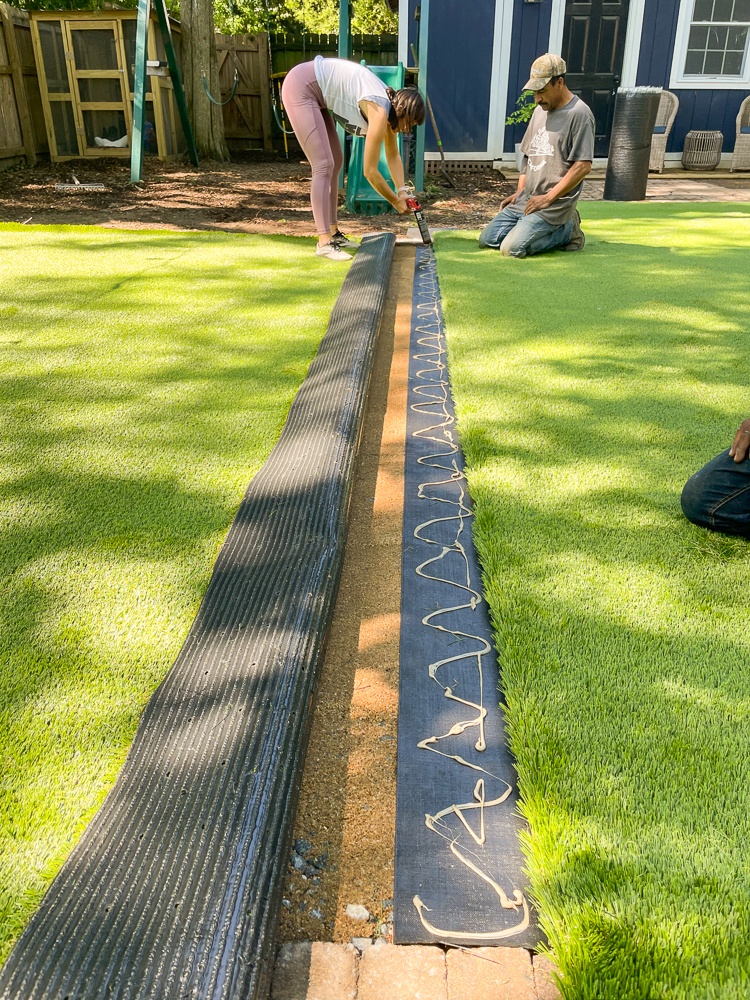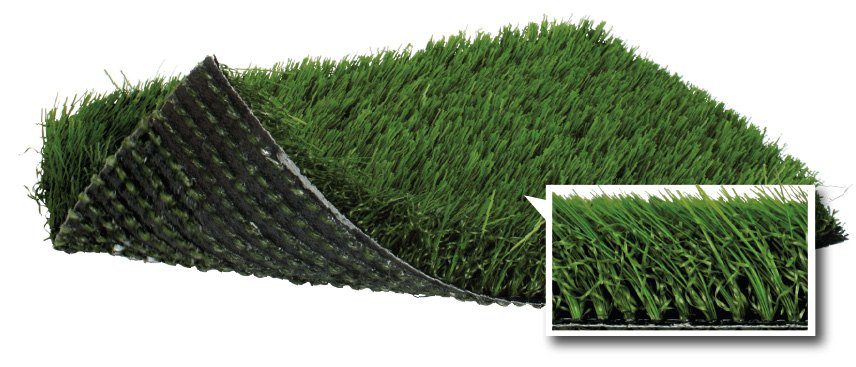Leading Factors to Consider Artificial Grass for a Rich and Low-Maintenance Yard
As home owners progressively look for sustainable options for outdoor rooms, man-made turf provides an enticing alternative to traditional grass. The advantages prolong past plain appearances and sustainability; discovering the diverse effects of artificial turf exposes an extensive technique to backyard management that benefits deeper factor to consider.
Year-Round Plant
One of the most significant advantages of synthetic turf is its capability to give year-round greenery, regardless of climate problems. Homeowners typically encounter obstacles in keeping a lively yard because of seasonal changes, droughts, or heavy rains. Fabricated yard gets rid of these worries, making sure a constantly rich appearance throughout the year.
This artificial option is engineered to stand up to different weather circumstances, from scorching summer season warm to freezing winter temperature levels. Unlike natural turf, which may brownish or end up being patchy throughout severe conditions, synthetic grass preserves its vibrant color and texture, boosting the aesthetic allure of any type of landscape.
In addition, man-made grass is immune to insects and diseases that normally influence natural grass. This durability contributes to its long-lasting elegance, as there is no requirement for chemical therapies or fertilizers that can be hazardous to the setting. Property owners can take pleasure in the aesthetic benefits of a properly maintained yard without the intermittent challenges presented by all-natural yard treatment.
Decreased Upkeep Efforts
Fabricated grass significantly lowers maintenance initiatives, permitting home owners to enjoy an immaculate yard without the taxing tasks connected with all-natural lawn care. One of the most significant advantages of synthetic lawn is the elimination of routine mowing. Without demand for a lawnmower, homeowners save both time and the cost of upkeep related to this devices.

Cleaning man-made grass is simple; a simple rinse with a pipe or the occasional cleaning to get rid of particles is typically enough - backyard artificial grass. This ease of care enables homeowners to invest even more time appreciating their outdoor areas instead of struggling over them. In summary, the decreased upkeep initiatives related to artificial lawn make it an enticing choice for those seeking a lovely, convenient yard
Water Conservation Perks
The substantial decrease in upkeep initiatives associated with fabricated grass encompasses water conservation, making it an eco-friendly option for property owners. Standard yards need considerable quantities of water to stay lively and rich, usually leading to excessive water use, specifically in deserts. In contrast, fabricated grass removes the demand for normal watering, significantly minimizing the overall water consumption in your lawn.
By selecting synthetic lawn, house owners can preserve hundreds of gallons of water annually. This shift not only advantages specific houses yet likewise adds to broader ecological campaigns focused on minimizing water waste. In areas experiencing water scarcity, the fostering of synthetic turf can play a considerable role in minimizing the impacts of drought and ensuring that beneficial water sources are used more successfully.
Moreover, the installation of synthetic lawn can help lower municipal water need, benefiting the area all at once. With growing recognition of environmental concerns, selecting synthetic grass offers as a proactive action in the direction of sustainable landscape design, helping to maintain natural water resources while maintaining a cosmetically pleasing outside space (artificial grass). In recap, artificial lawn presents an engaging solution for water conservation, straightening environmental obligation with modern landscape design needs

Bug and Allergic Reaction Reduction
A considerable advantage of installing synthetic turf is its ability to reduce parasites and irritants in outside rooms. Standard lawn lawns frequently work as breeding premises for pests such as insects, ticks, and ants, which can produce discomfort and wellness dangers for family pets and households. On the other hand, artificial yard gets rid of the natural material that attracts these bugs, thus considerably decreasing their populaces in your yard.
Moreover, natural grass can nurture mold, plant pollen, and other allergens, which can cause allergic reactions and breathing issues for delicate individuals. Synthetic grass provides a cleaner setting, decreasing the possibility for allergenic reactions. Unlike natural lawn, synthetic grass does not create plant pollen, making it an outstanding choice for allergic reaction victims seeking to appreciate their exterior areas without the threat of flare-ups.
In addition, the absence of dirt advice in synthetic grass means there is less dirt and dirt, more minimizing air-borne irritants. This low-maintenance alternative not just enhances the visual allure of your yard however additionally promotes a much healthier outdoor atmosphere, enabling family members to enjoy their yards without the constant fear of irritants and parasites. Thus, synthetic grass is a strategic choice for those prioritizing comfort and health and wellness in their outdoor living areas.
Long-Term Cost Savings
Investing in synthetic lawn can bring about considerable long-term expense savings for home owners. While the first investment may seem significant, the monetary advantages over time can be considerable. Artificial turf gets rid of the demand for normal grass upkeep expenditures, such Click Here as mowing, feeding, and watering. Traditional grass frequently need considerable sources to preserve a rich appearance, particularly in areas prone to drought or extreme weather.
Additionally, the durability of synthetic lawn further enhances its cost-effectiveness. Most high-quality artificial yard items can last 15 to 25 years with minimal maintenance, minimizing the requirement for replacement or considerable fixings. In comparison, natural turf might need frequent reseeding and normal care, which can quickly accumulate in prices.
Utility financial savings are one more crucial variable. House owners can anticipate to see lower water bills, as artificial turf does not need irrigation. In addition, the reduction in lawn treatment services can release up important time and sources, enabling property owners to allot their budget plans elsewhere.
Final Thought
In recap, fabricated grass presents many advantages for house owners looking for a low-maintenance and vibrant landscape. Its capability to offer year-round plant, coupled with minimized upkeep efforts and considerable water explanation preservation, makes it an attractive option. In addition, the reduction of allergens and insects adds to a healthier outside atmosphere. Inevitably, the long-lasting price financial savings connected with artificial grass solidify its standing as a sustainable and functional solution for enhancing exterior spaces.
Fabricated grass considerably decreases maintenance efforts, allowing house owners to appreciate an immaculate grass without the taxing jobs connected with all-natural yard treatment.The considerable reduction in maintenance efforts linked with fabricated grass expands to water preservation, making it an eco friendly option for homeowners. In contrast, fabricated lawn gets rid of the need for regular watering, significantly reducing the general water usage in your yard.
In locations experiencing water shortage, the fostering of artificial lawn can play a substantial function in mitigating the results of drought and ensuring that beneficial water sources are made use of a lot more efficiently.
With expanding understanding of ecological problems, selecting synthetic yard serves as a proactive action towards lasting landscape design, helping to maintain natural water resources while maintaining a cosmetically pleasing outdoor space.